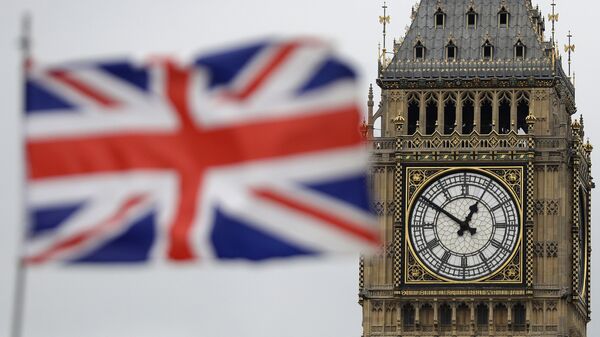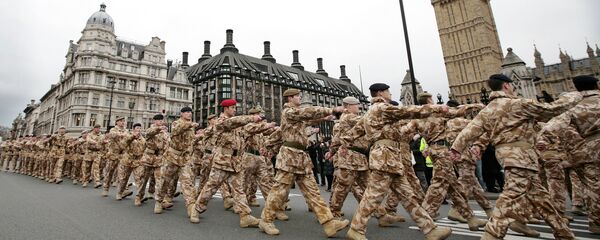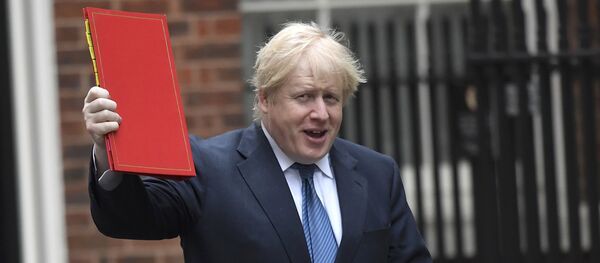According to the report, the "move is said to follow Donald Trump’s arrival at the White House and the anticipation that his administration will forge ties with Russian President Vladimir Putin."
"The UK had to look at its relation again with Russia in light of what is likely to be the Trump administration’s attitude towards Russia in the future. We characterize the British position now as pragmatism taking over from dogmatism," a senior Western European diplomat told the newspaper.
London has faced a hard option of leaving the European bloc. Recently, President of the European Council Donald Tusk said that in order to preserve control over Gibraltar, Britain will have to make an agreement with Spain. He proposed to give Madrid a veto on the issue of trade relations between the British enclave and Brussels.
According to the Independent, the "decision to engage more with the Kremlin came in early March as [British Foreign Secretary] Boris Johnson prepared to be the first British foreign secretary to visit Russia in five years."
Among the issues due to be discussed were Syria, Libya and Ukraine, according to a source.
Johnson’s visit to Moscow was cancelled due to a change in the schedule of a NATO defense ministers meeting.
However, according to sources, Johnson is expected to visit Moscow in several weeks.
Some British media outlets have also reported that Johnson does not want to go to Russia but he is being pressured by his party fellow and expert entourage.
The authors of the report noted that Haftar managed to establish order in the territories controlled by his forces. At the same time, the western part of the country controlled by a US- and Europe-backed government in Tripoli continues to be plunged in chaos and violence.
Moreover, in early-March, the Foreign Affairs Committee of the UK House of Commons issued a report on London’s relations with Moscow, arguing that "it is shortsighted not to engage with Russia – however uncomfortable such conversations might be."
The report contained recommendations for British diplomats on relations with Russia.
London should "clarify what the UK wants to achieve in its bilateral engagement with Russia. This should involve dialogue on specific issues, such as counter-terrorism, cybersecurity or aviation security, in order to establish both points of agreement and points of difference," the document read.
Nevertheless, not many in the British establishment are ready for a compromise with Russia. For example, Defense Secretary Michael Fallon warned Russia from active actions in Libya.
"We don’t need the bear sticking his paws in," he said at the Munich Security Conference in February.
Fallon also said Russia was "testing" NATO by siding with Libyan general Haftar.
Haftar paid a visit to Moscow late last year, with officials remaining hush-hush about the content of the negotiations. In January, the Marshal demonstratively boarded Russia's Admiral Kuznetsov aircraft carrier as it was sailing along Libya's coast, discussing the fight against terrorism with Russian Defense Minister Sergei Shoigu in a video conference call.
Finally, another troubling factor is that London first supported the recent chemical weapons allegations against the Syrian government and then welcomed a US missile strike on a Syrian airbase in Homs.
"My attitude toward Syria and Assad has changed very much … You’re now talking about a whole different level," US President Trump said, commenting on the reported chemical attack in Idlib.
The incident is a potential breaking point between Moscow and the new US presidential administration but also between Moscow and London because the UK made the decision to seek dialogue with Russia at a time when hopes of a US-Russia thaw were high.
Never miss a story again — sign up to our Telegram channel and we'll keep you up to speed!







